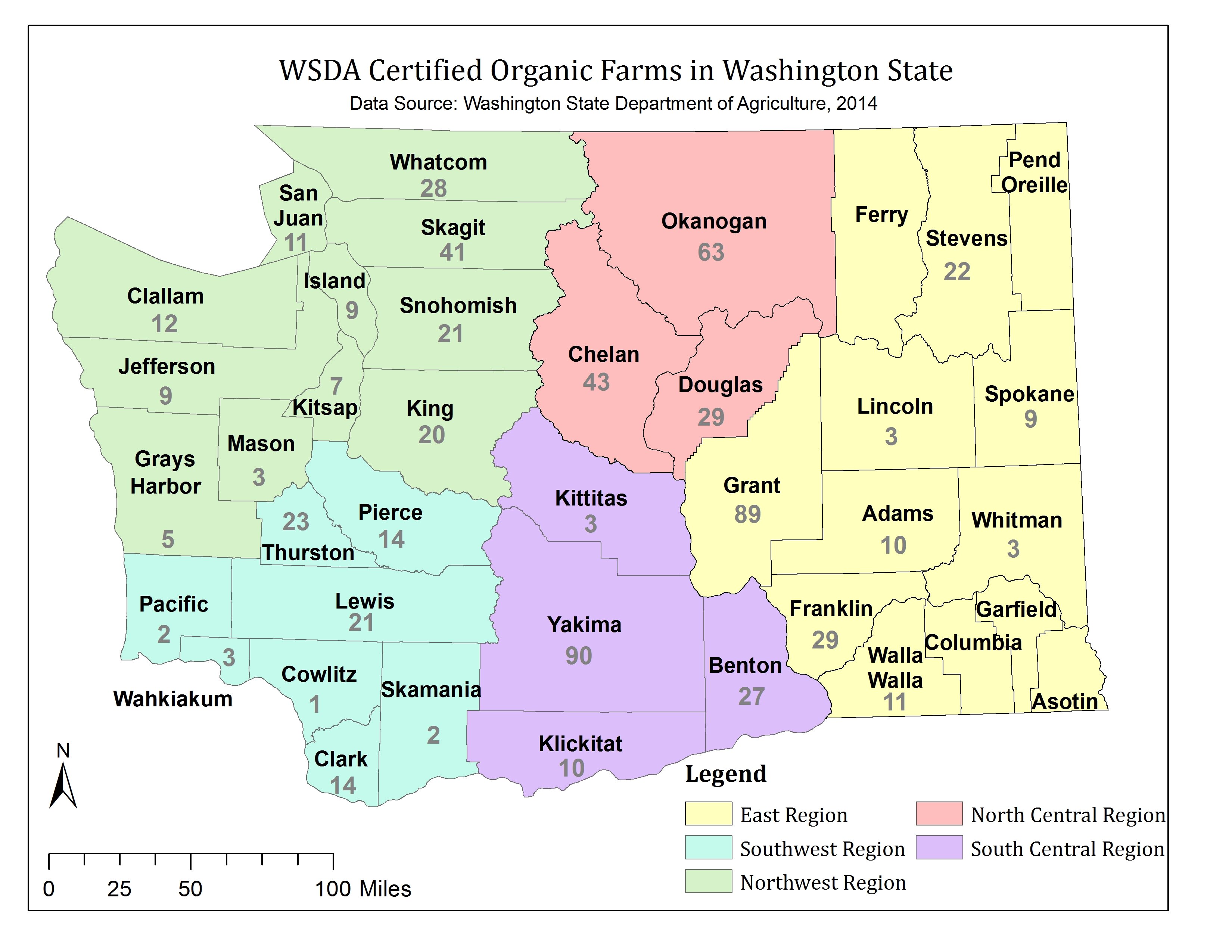From the Olympic rainforests to the slopes of the Cascades, the northwest corner of our state is lush and abundant, with a deeply rooted and rapidly expanding local food system.

The region’s moist, mild climate is dominated by the Pacific Ocean and Puget Sound. Rains sweeping off the Pacific Ocean are blocked by the Olympic Mountains, causing wide variations in precipitation. Coastal lowlands are deluged with up to 100” of rain per year, but precipitation drops to 60-80 inches on the Kitsap Peninsula, 30-40 inches in the Puget Sound lowlands, and just 10 to 30 inches on the north Olympic Peninsula and San Juan Islands.
Major river valleys include the Chehalis, Dungeness, Duwamish, Nooksack, Skagit, Snohomish, and Stillaguamish. Each of the valleys has unique soils, micro-climates and farming traditions that weave the region’s rich agricultural tapestry.
Northwest Washington is home to 3/4 of our state’s population. The region’s thriving local foods movement includes a growing network of food cooperatives and bustling farmers markets in Bellingham, Mount Vernon, Port Townsend, Seattle, and dozens of smaller communities.
Because of its generally mild climate and proximity to major markets, the land is prime for intensive food production. The 11-county region has 180 certified organic farms with 17,134 acres of certified organic land.
Major crops in Northwest Washington include mixed vegetables, berries, flowers, tree fruit, and dairy. The area is renowned for the highest quality carrots, leeks, potatoes, cabbage, cucumbers, green beans, and sweet corn.
Northwest Washington’s mild winters and generally dry summers also make it ideal for vegetable seed production. Farmers in Whatcom, Island, Skagit, and Snohomish counties grow much of the nation’s carrot, spinach, radish, beet, cabbage, cauliflower, and broccoli seeds.
The Puget Sound Basin’s emerald-green valleys have historically supported large dairy herds. While encroaching urbanization and increased land costs are driving much of the commercial dairy industry east of the Cascades, several organic dairies continue to thrive in the region, and many small farms are also now raising pigs, goats and sheep.
According to the most recent survey, certified organic farms in Northwest Washington generated $36.6 million in sales in 2011. Many of the region’s larger organic farms market their crops through wholesale distributors or directly to wholesale buyers such as grocery stores, restaurants, hospitals, and other institutions.
Because of growing consumer demand, local farmers are also finding increased opportunities to market directly to the public at the region’s numerous farmers markets. As an indicator of the economic impact the markets are having, Chris Curtis, Director of Seattle’s Neighborhood Farmers Market Alliance, reported that the 104 farms selling at her organization’s seven member markets had a total of 3,800 acres in production, provided 317 full time and 1,108 part-time jobs, and generated total sales $7,121,205. As this illustrates, organic farming is not only contributes to the health of people and the land, it also provides employment and helps strengthen local economies.
Source: WSU CSANR
Learn about Tilth Producers member farms listed in our directory
Northwest Washington Farm Profile – Hopewell Farm
Resources for Northwest Farmers
Cascade Harvest Coalition
Farmer’s Own Organic
Growing Washington
Kitsap Food & Farm Policy Council
PCC Farmland Trust
Puget Sound Food Network
Puget Sound Fresh
Puget Sound Regional Food Policy Council
Sustainable Connections Food & Farming Program
WSU Mount Vernon Research Center



